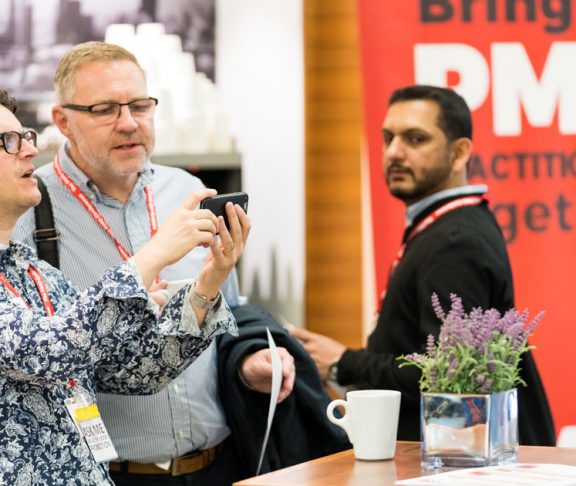
Lindsay Scott
Director of PMO Learning, Founder of PMO Flashmob & The PMO Conference
Organisations of all sizes continue to respond to the Fourth Industrial Revolution – the digital revolution that delivers innovations and breakthroughs at increasing speed – and at the forefront of that response is project management.
Programmes and projects are an organisation’s approach to delivering change and as the change environment becomes increasingly VUCA (volatile, uncertain, complex and ambiguous), new ideas and approaches are needed to help adapt and flex the way projects are implemented.
The PMO is the part of the organisation that provides guidance and support to all those involved in the delivery of project and programmes – from senior executives to end users and customers.
The role of the PMO right now includes scanning the horizon; exploring new ideas; concepts; technology and frameworks that will help organisations to deliver change at pace while delivering the outcomes and benefits all their customers want.
The opportunity is there for the PMO to move from the passive role of data collector and monitor to the people who proactively provide insights into future outcomes.
What PMOs are exploring today
The PMO today sees emerging trends that can transform how projects are delivered; how decisions are made; how to maintain control in projects while delivering faster, smarter, better, cheaper and easier.
Here’s the three latest trends that PMOs are currently getting to grips with:
– Business agility and agile at scale
Businesses continue to utilise agile frameworks and approaches in order to deliver projects faster. The PMO has been working on the need to incorporate projects delivered using an agile approach alongside the traditional waterfall approaches (hybrid approach), leading to new practices in governance; benefits management; risk management; planning and reporting.
With an embedded hybrid approach becoming the norm, corporations now look to the next phase with an enterprise-wide agile adoption. Business agility philosophies and mindsets lead to organisations being “adaptive, creative and resilient when dealing with complexity, uncertainty and change” (Agile Business Consortium).
With a myriad of different frameworks available to assist with the adoption of business agility – collectively known as, ‘agile at scale’ – the PMO has a role to play in the education, adoption and successful implementation of what is arguably a big cultural shift for project management.
–Artificial intelligence
No longer just a concept that could change the workforce in the future, artificial intelligence (AI) and sub themes such as machine learning and robotic process automation are finding their feet in project management today.
The PMO is starting to explore how parts of the project management methods and processes can be automated – how time can be saved on the repetitive elements of reporting and time-sheeting with homegrown bots.
Machine learning, with its ability to identify patterns, is already starting to find a role in lessons learnt and progress reporting. PMOs are starting to explore the technology and tools that can make AI a reality and take their role of providing guidance and support that step further. To make gains on AI it is intertwined with the next theme:
– Data science and predictive analytics
The ideal role for any PMO is to provide the data, information and insights from projects and programmes so decisions can be made by the right people at the right time. That’s insights that are real-time; based on clean, accurate data and delivered in a way that compels people to take action.
All of this relies on the ability to collect decent data; clean it, qualify it and integrate it; be able to use it to make decisions today and predict what is coming down the line tomorrow, next month and next year.
The tools are available now, yet the skillsets of data scientists and analysts needed to drive them are not yet fully recognised or utilised in the project management environment.
The opportunity is there for the PMO to move from the passive role of data collector and monitor to the people who proactively provide insights into future outcomes; hopefully, more successful project outcomes.

